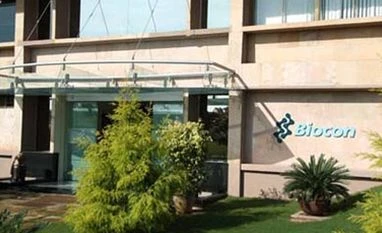Kiran Mazumdar-Shaw’s bet on biosimilars is proving to be a risk worth taking. On March 28, Biocon got regulatory approval for its Insulin Glargine in Japan, becoming the first Indian company to get the nod to sell biosimilar drugs in a developed country. Since then, Biocon’s share has risen 54.3 per cent, with investors giving their thumbs up to the move.
This, Shaw, the founder-chairman and managing director of Biocon, believes is a vindication of her strategy to continue investing in research on developing biosimilars, despite not getting any obvious or immediate results.
“For long now, I think we were not appreciated. People would ask us: Why are you putting so much money in (research & development) R&D? Why can’t you give bigger dividends? Look at Indian generic companies, which have lower R&D. Now, things are changing after the Japanese approval,” she said in a recent interview to Business Standard.
The investor apathy was largely because of a lack of understanding of the differences between biosimilars, which are generic versions of drugs made from living organisms, and other common drugs, such as Aspirin, which are made by chemical processes. Biosimilars are not only more expensive to produce but also more time-consuming, as these protein-based drugs are difficult to replicate.
Typically, they cost 20-50 times more to produce than chemical drugs. The effort is also risky, as manufacturers need to prove the efficacy and safety of biosimilars through extensive clinical trials before they can market them. Biocon’s investment in research, at Rs 427 crore in 2015-16, was among the highest in the Indian pharma industry.
Also Read
Finger on the market’s pulse
Biocon’s pipeline looks robust. This year, it plans to make filings in the US and Europe for four of its drugs focused on managing diabetes: Insulin Glargine, Trastuzumab, Pegfilgrastim and Adalimumab.
The US is among the biggest markets for biosimilars. The US Food and Drug Administration started to evaluate biosimilars only in 2010, nearly a decade after Europe began to accept such products. Last year, the US opened its doors, with an immune boosting drug from Sandoz, the generics arm of Swiss pharmaceutical manufacturer Novartis and the market is already expected to be worth $20 billion.
“Once you start getting into these developed markets at much higher prices than generics, your business profitability increases and you get the comfort level that you are getting payback,” says Shaw. “If the market is not crowded, the kind of share you can take and the opportunity in pricing you enjoy will be rewarding.”
Apart from global rivals such as Eli Lilly, Merck and Boehringer Ingelheim, Dr Reddy’s Laboratories is the only other Indian player with a pipeline of biosimilars for the international market. Dr Reddy’s has tied up with Mylan, the generic player with an impressive market reach, to sell its products in the developed world.
Biocon, meanwhile, has tied up with Fujifilm Pharma to develop and commercialise its product in Japan and with Lab Pisa of Mexico to take the recombinant human insulin to the US market. It plans to launch Insulin Glargine in Japan in the first quarter of the next financial year.
Also Read: Opened Up Pandora's Box: Kiran Mazumdar-Shaw On Brexit
Also Read: Opened Up Pandora's Box: Kiran Mazumdar-Shaw On Brexit
Alongside, it has been working on new molecules for anti-immune bodies, a technology platform to treat cancer and a drug for a rare eye disease prevalent in India in partnership with Israel’s Quark Pharmaceuticals. In 2015-16, Biocon reported a profit of Rs 896 crore on revenue of Rs 3,451 crore.
What has helped Biocon tide over the time-consuming and costly process of drug development is its subsidiary Syngene, which handles research work for global pharma majors. The outsourced work provides Biocon a constant stream of revenue, in between its drug development phase.
“We have taken a risk-balance approach where our research services business Syngene helps us tide over our expensive development phase,” says Shaw, adding, “We also had our other business doing well. Active pharmaceutical ingredients, our branded formulation and insulin business helped us financially during challenging times.”
Yet, analysts have sounded a note of caution. “Announcement of filing four biosimilars in FY17 is the cause of recent stock run-up. No doubt biosimilars is a large opportunity but also one full of uncertainty,” a note from brokerage CLSA said on July 5. “Core valuations look expensive; value-unlocking from biosimilars is beyond FY18.”
)